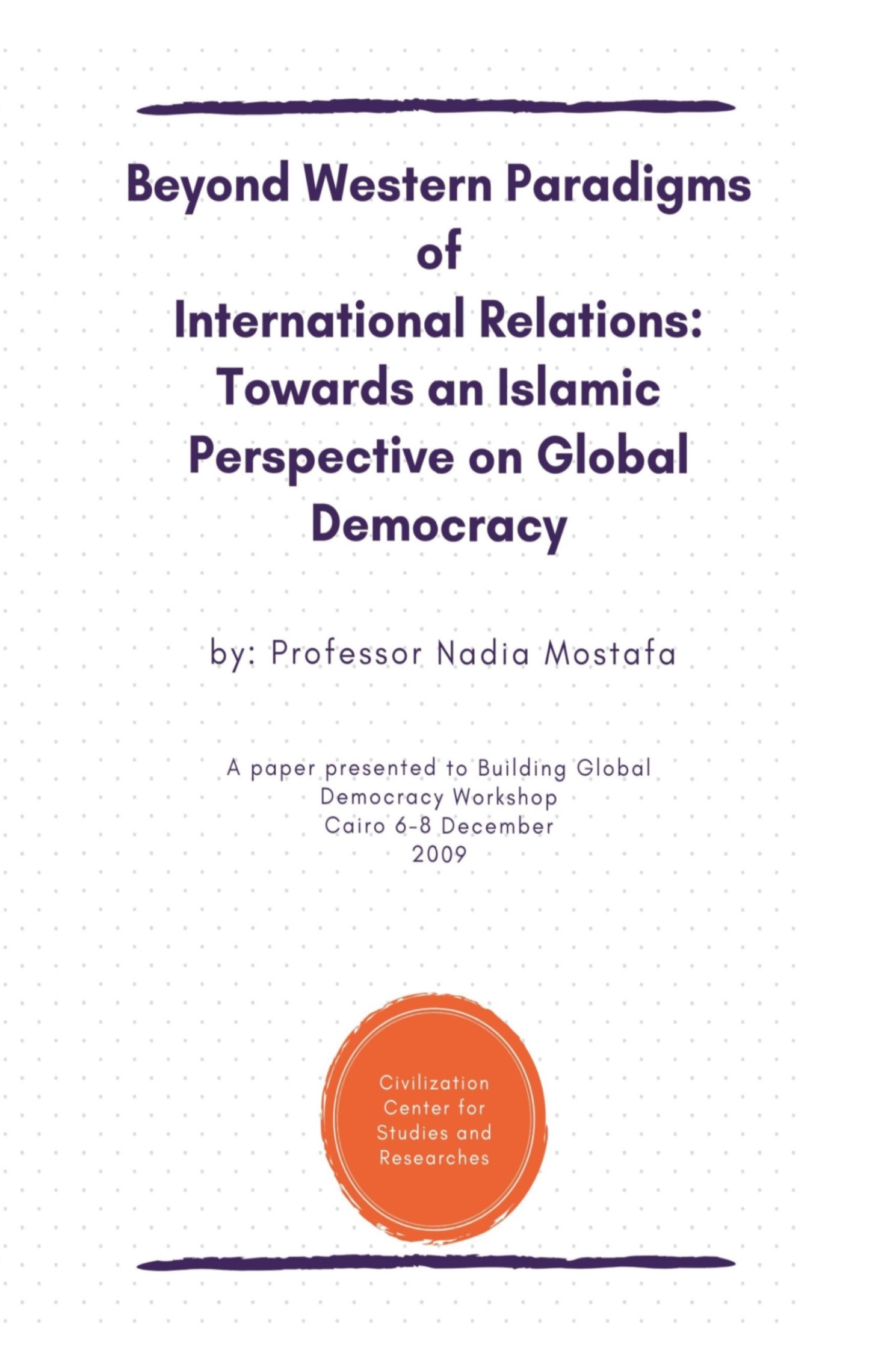beyond Western Paradigms of International Relations: Towards an Islamic Perspective on Global Democracy
Under the impact of important global developments in the last quarter of the twentieth century, an array of issues has stirred academic, intellectual and political discussions, whether on the level of global politics or on the level of revisions in IR as a discipline, with various paradigms and schools of thought. These issues are: Islam and democracy, Islam and development, Islam and human rights, Islam and the Clash of Civilizations, Islam and terrorism, and so on and so forth. These issues were associated with broader issues, such as Islam in the new global system, Islam and global changes and Islam and globalization… etc. These intellectuals, political and academic debates have not yet been settled, posing serious challenges. These debates have two features: First: they invoke Islam versus diverse social phenomena such as democracy, development and so on. Whereas what is required is invoking paradigm(s) emanating from an Islamic frame of reference versus paradigms emanating from other frames of reference when studying the same issues or phenomenon. Nevertheless, the social scientific studies on Islam continued to consider Islam just as one variable affecting the development of these phenomena. Second: all incidences of debates and discussions originate from outside the Muslim world, and therefore, Muslims did not participate in setting the agenda and priorities. Their role was limited to participate in and respond to the agenda of policies, ideas and theories set by the West. This agenda do not necessarily reflect the context and priorities of the Muslim world. Revisions of the state of art in IR- during the past three decades- occurred within this complex picture. The main feature of these revisions was the renewed interest in the role of religion, culture, and values in the scientific study of IR. Another feature was that the boundaries between the internal and external have been shaken (in theory and practice). Revisions and discussion took place within IR, a discipline that claims to be international; however, it remains unwilling to recognize alternative paradigms( ). In this paper we enter the debate over what is called “global democracy”. This debate reflects all the intersections of internal and external factors. It also reflects a new phase in the development of these intersections in the western circles.
